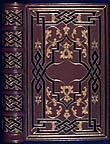


Guillaume Budé (1468-1540) visited Venice in 1501 as a diplomat for the French king Louis XII. By the time of this visit he already had a scholarly reputation, and he quickly became part of the international network of humanists to which Aldus belonged. Though his activities were varied, his reputation as a humanist of the greatest erudition was established in 1515 with the publication of De asse et partibus eius.
De asse is a treatise on Roman coinage, but it also contains a manifesto arguing for the necessity of humanism in a Christian education. Budé argues that the truly educated Christian must study not just the Bible and the writings of the church fathers, but all types and forms of knowledge so that he may recognize truth when he sees it. Although recognized by Budé's contemporaries as a valuable restatement of humanist aims and principles, De asse attracted criticism because of its heavy, obscure, and ornate style; the difficulty of conquering Budé's Latin is in no small measure responsible for the neglect into which De asse has fallen in subsequent centuries.
BYU's copy is a very fine example of Aldine printing, further enhanced by exceptional nineteenth-century gilding and binding.


 Exhibit Home Page
Exhibit Home Page  Humanist Texts
Humanist Texts